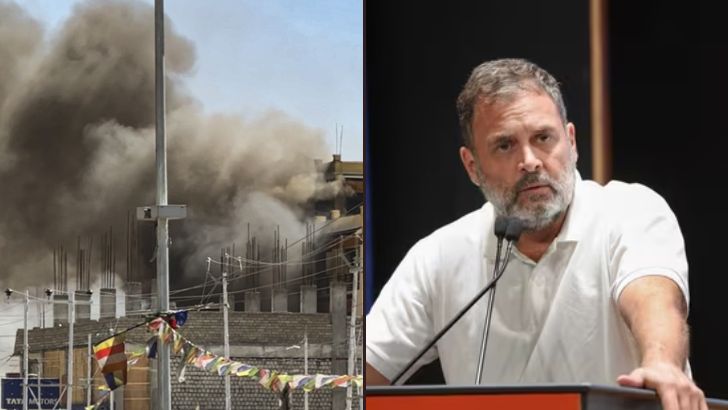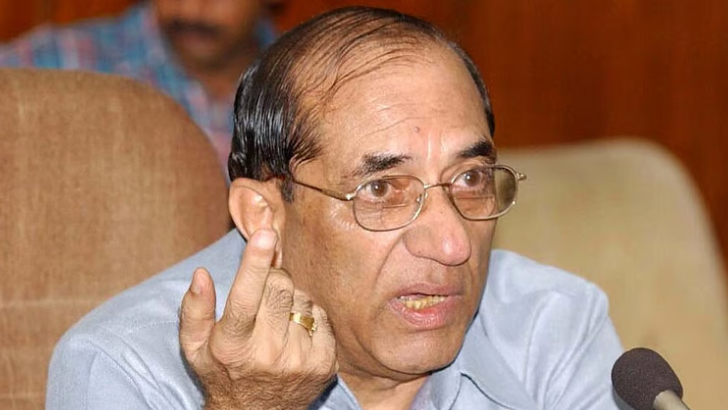Pandit Chhannulal Mishra, voice of Indian classical music, dies
PM Narendra Modi, who hailed the vocalist for his invaluable contribution to Indian arts, noted that hea was one of the proposers for his candidature from Varanasi in 2014.
PTI
-
The Padma Bhushan awardee breathed his last around 4 am. (PTI)
Mirzapur, 2 Oct
Pandit Chhannulal Mishra, one of the greats of Hindustani
classical music who melded folk and ragas, culture and devotion, and sang to us
of the joy of Holi, the yearning for 'sawan' and timeless tales from the
Ramayana, died here on Thursday. He was 89.
That Thursday was Dasara, the day in the Ram katha when good
vanquished evil, was perhaps a coincidence that the vocalist, described by some
as a revered spiritual voice of the Banaras gharana and the voice of Kashi,
would have enjoyed.
The Padma Bhushan awardee, known for his rare gift of
turning his performances into a conversation with the divine and his masterful
command over various music styles, breathed his last around 4 am.
Mishra, who lost his wife Manorama and a daughter, Sangeeta,
during Covid, had been staying in Mirzapur for some time with his youngest
daughter's family. He leaves behind his son, a Tabla player Ramkumar Mishra,
and three daughters.
According to his family, Mishra's health deteriorated late
Wednesday night.
"He was admitted to the hospital for the last 17-18
days with age-related issues. He passed away at home this morning at around 4
am," his daughter Namrata Mishra told PTI.
Though trained in the Kirana gharana’s 'khayal gayaki',
Mishra earned wider acclaim as a master of thumri, while also making
significant contributions to other forms such as dadra, chaiti, kajri and
bhajan.
His deeply moving renditions include ‘Sawan Jhar Lagela
Dheere Dheere’, a soulful kajri steeped in monsoon longing, ‘Kaise Sajan Ghar
Jaibe’, a heart-wrenching thumri exploring themes of separation and devotion,
and his powerful sohar renditions -- traditional folk songs that celebrate the
joy of childbirth. One of his most popular perhaps is the evocative ‘Barsan
Laagi Badriya’ with Girija Devi.
A purist, Mishra mostly stayed away from lending his voice
to Bollywood songs. However, brought classical richness to some tracks like ‘Saans
Albeli’ and ‘Kaun Si Dor’ for the 2011 film ‘Aarakshan’, successfully bridging
the gap between traditional and popular music.
President Droupadi Murmu said his death was an
"irreparable loss to Indian music".
Prime Minister Narendra Modi, who hailed the vocalist for
his invaluable contribution to Indian arts, noted that Mishra was one of the
proposers for his candidature from the Varanasi Lok Sabha seat in 2014. His
renditions carried the essence of the city's musical heritage, Modi said in a
statement.
"I am deeply saddened by the passing of renowned
classical vocalist Pandit Chhannulal Mishra ji. Throughout his life, he
remained devoted to the enrichment of Indian art and culture.
“He not only brought classical music closer to the masses
but also played a vital role in showcasing Indian traditions on the global
stage... In this moment of grief, I extend my heartfelt condolences to his
family and admirers. Om Shanti," the PM posted on X.
According to Vice President CP Radhakrishnan, who expressed
his deep sadness at the death of the maestro of the Banaras Gharana of
Hindustani classical music, Mishra’s lifelong dedication enriched Indian music
and culture.
Uttar Pradesh Chief Minister Yogi Adityanath also expressed
his grief at Mishra's death.
"You dedicated your entire life to the upliftment of
Indian classical music. Your singing is an inspiration to art practitioners,. I
pray to Lord Shri Ram to grant salvation to the departed soul and give strength
to his bereaved family, followers, and fans to bear this immense
grief...," he posted on X.
Born in 1936 in Hariharpur village, Azamgarh, Mishra was
initiated into music by his father, the late Pandit Badri Prasad Mishra. He was
later trained in the Kirana gharana style under Ustad Abdul Ghani Khan, and was
further mentored by renowned musicologist Thakur Jaidev Singh, who helped
refine his understanding of the deeper nuances of Indian classical music.
His ties to music also extended into his marital family --
his father-in-law was the acclaimed tabla maestro Pandit Anokhe Lal.
An immensely knowledgeable artist, with an illustrious
career spanning over six decades, Mishra expressed his concern over the
declining interest among the youth in pursuing classical arts in an interview
with PTI in 2020.
It was a trend he believed was threatening the survival of a
tradition that has represented India's rich cultural heritage for centuries.
"Nobody is coming to learn these days... they have
become masters in their heads. They think that just because they can sing a
'taan' better than guru ji, there's no need to learn. What they don't
understand is learning an art requires seriousness, it requires a great deal of
patience," he said.
In her tribute to the late artiste, celebrated folk singer
Malini Awasthi said he was one of the first artists in the classical tradition
to earn deep respect across diverse forms -- from khayal and thumri to bhajans
dedicated to Bholenath and Devi.
With his passing, "Kashi's folk voice has gone
silent", she said.
Awasthi described him not only as a "master
musician" but also as a "devout spiritualist", noting that it
was this rare blend of musical brilliance and devotion that led audiences to
request devotional songs alongside classical pieces during his performances.
Despite his widespread fame and regular invitations to
perform in cities far and wide, she noted that he led a humble life,
"residing in a small room barely large enough to fit three people".
"Mishra ji once said, 'All the children ask me to move,
but how can I leave my God behind?' He would often recite sacred verses like
Manas Ki Chaupai during his conversations. This humility and spiritual
grounding were as much a part of his legacy as his profound musical
genius," she told PTI Video.
Actor-singer Durga Jasraj, daughter of the legendary Indian
classical vocalist Pandit Jasraj, described his singing style as “distinct” and
his stage presence as "magical" -- especially the way he would
narrate the mythological backstories behind the songs he performed.
"He truly was one of the great pillars of Indian
classical music. I got the news from his son; he had been unwell and bedridden
for years. While it may be a relief to his body, we have lost a remarkable
vocalist and an irreplaceable artist," she added.
Leave a Reply
Your email address will not be published. Required fields are marked *








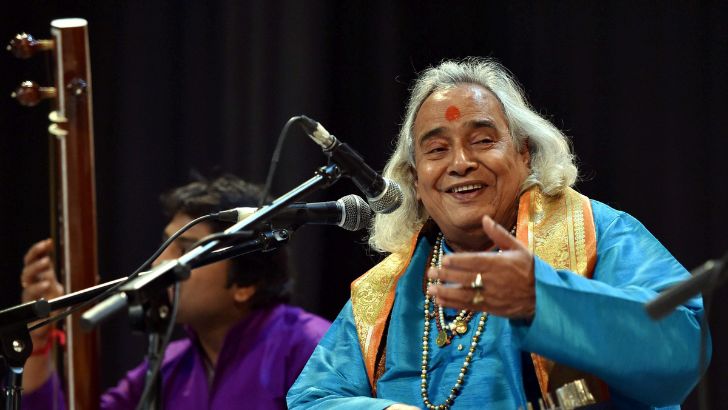

.png)
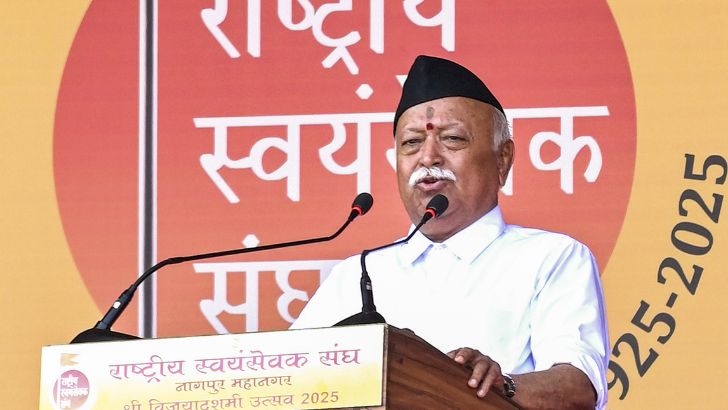
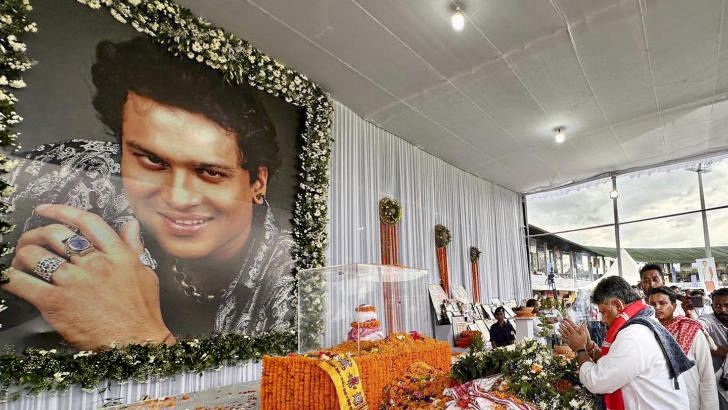
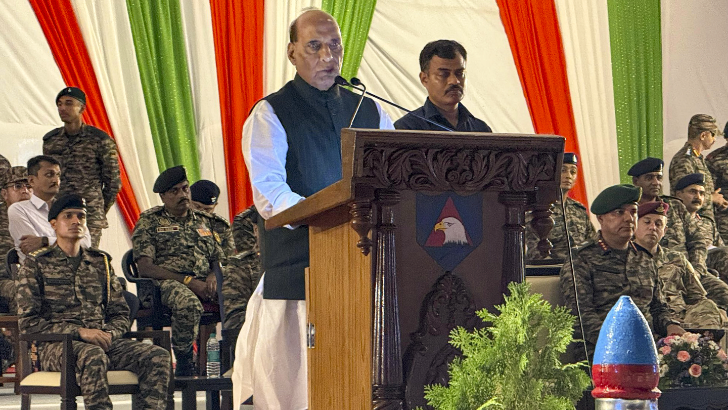
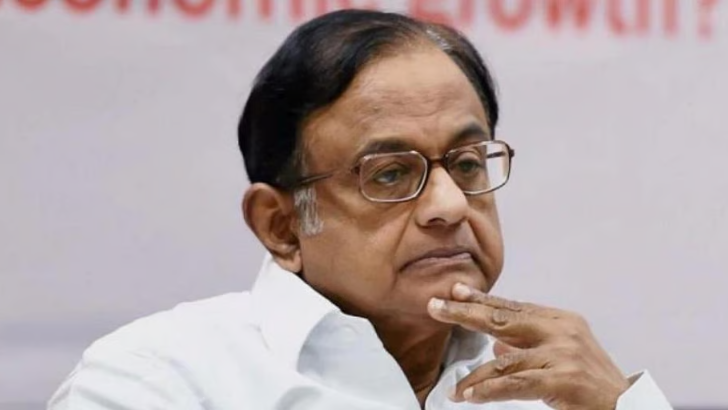
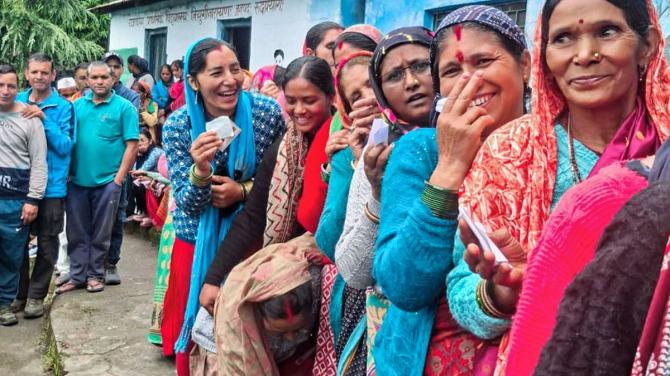
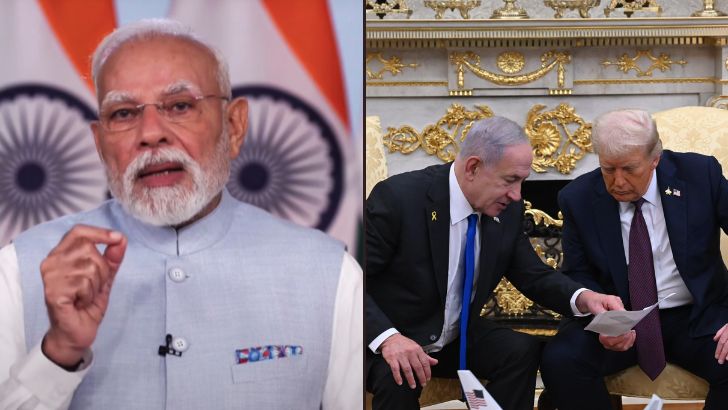
.png)
